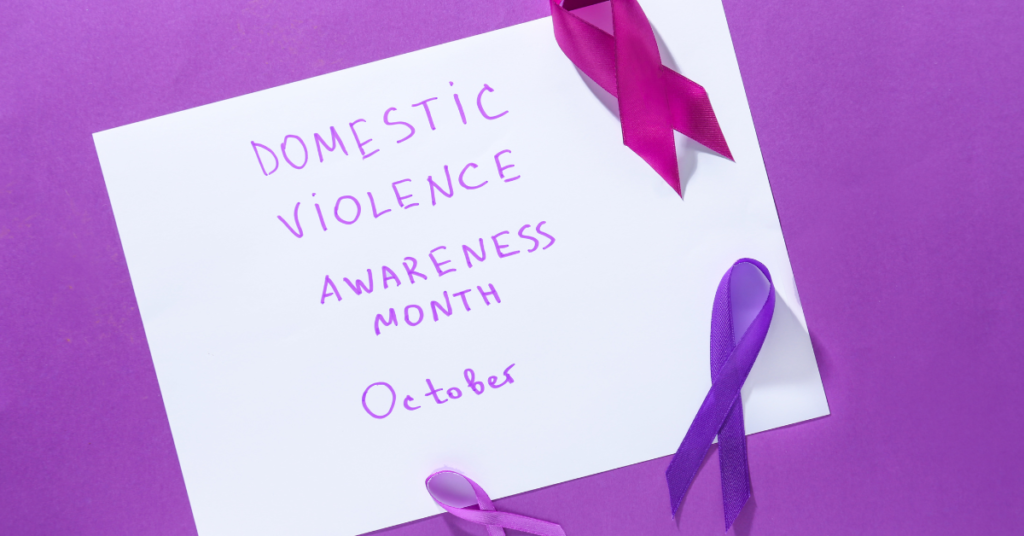What is Domestic Violence?
Domestic violence is a term that refers to violent behaviors between people who live with one another. The individuals involved do not have to be spouses or significant others. They can also be parents, siblings, aunts, uncles, cousins, etc., who are living together and are engaging in violent behaviors with one another. You may also hear the term “Intimate Partner Violence”, which refers to violent behaviors between people who have an intimate relationship but are not living together. I feel that our society has become desensitized to both terms due to the acceptable amount of violence that we see in entertainment and media. How often have you watched a reality show where people were fighting, jumping on tables, throwing things, and it was received by the public as fun and entertaining? How many times have you watched movies where people slapped one another across the face or threw a drink on someone? How do we receive and process these images and what are the implications of our acceptance of violence in our society? As a licensed therapist, I find that many of my clients are unaware of what domestic violence really is and that they might be either victims or perpetrators of domestic violence. Most people feel that if there are no injuries or bruises, then they have not committed domestic violence. For example, one client told how her boyfriend, with whom she lives, poured a bottle of water on her, in a social setting, while he was angry with her. One client threw plates at her husband while angry. Several clients punch holes in walls and destroy property in the home while angry. During couples counseling, a wife told of how her husband picked her up, threw her out of the back door, and locked the door leaving her outside in the backyard. When I addressed his actions as domestic violence, he passionately said over and over, “But I didn’t hit her”. He couldn’t understand that his anger and his actions equated to violence. None of these clients were aware that their actions or the actions of their partners was domestic violence or intimate partner violence. So, I would like to bring some clarity to the issue. The word violence has been defined as “physical force so as to injure, abuse, damage, or destroy (Retrieved from https://www.merriam-webster.com). When you add the domestic or intimate partner terms, you are just defining the type of setting in which the violence occurs. All violent acts do not cause injury. Some violent acts are abusive in nature, such as the case in which the client’s boyfriend poured a bottle of water on her. She was not injured physically, but her boyfriend used a physical force to shame and humiliate her. Therefore, his actions are defined as violent.
What Are the Implications of Domestic Violence and Intimate Partner Violence?
If society is becoming desensitized to domestic violence and intimate partner violence, the implication is that society is becoming more and more violent. Our homes will no longer be safe spaces, but battlegrounds where people are constantly fighting for power and control. Domestic violence and intimate partner violence always carries a high risk for serious injury and/or death due to the volatility of emotions during these events. Some people have regrets for harming others in a fit of rage, but practice no self-control in the moment.
Children being raised in these environments are learning that it is acceptable to externalize their anger with physically harming others and destroying property when they don’t get what they want. Children learn by watching and mimicking others, even when the behaviors are harmful to them. How will they know any other way to behave? Without acknowledgement of this societal scourge and proper intervention, the result will be generational pathological behaviors that will continue to be passed on.
What Do We Do About Domestic Violence and Intimate Partner Violence?
Education is key. People need to become less desensitized and more empathic towards others. We need to care about how we show up in our relationships and how our actions impact others. We need to be self-aware of how we express strong emotions and the consequences of not controlling them. We need to eliminate the need for power and control and increase humility in our relationships. Opening the door to conversations and being willing to learn new information is vital for change. Utilize mental health professionals and licensed therapists to address anger management and emotional regulation issues. Attend individual therapy and couples counseling to discover how healthy relationships should look and function. Find resources whether in-office or virtual that will work for you. Our lives and future generations are depending on the attention that we give to this very important issue.
National Domestic Violence Hotline: 800-799-7233

